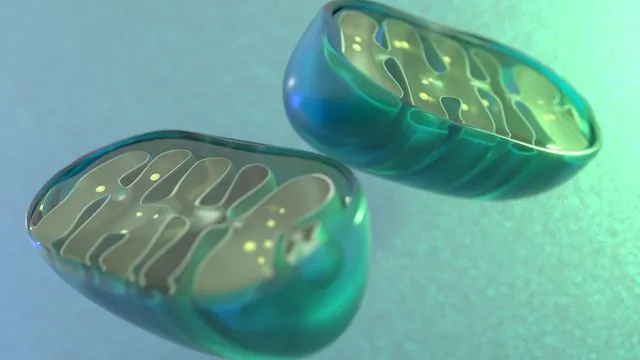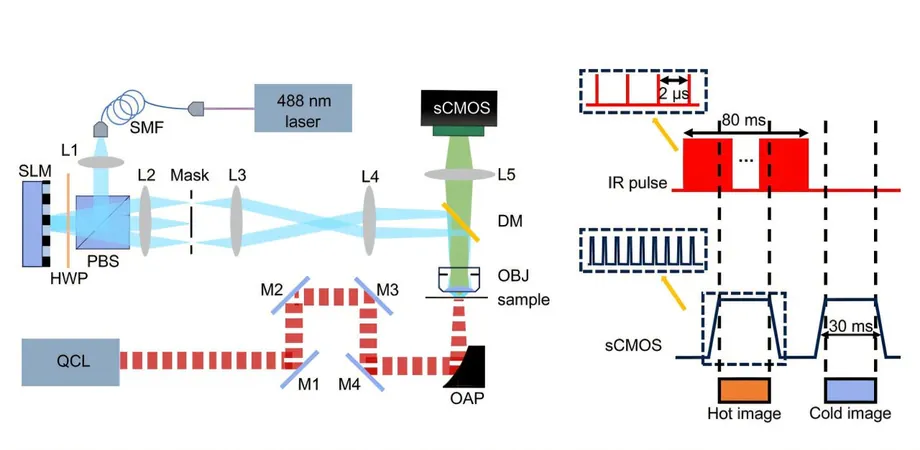
Revolutionary Small Molecule Revitalizes Mitochondrial Function in Genetic Disorders!
2025-04-11
Author: Sarah
A Game-Changer for Mitochondrial Disorders
When our powerhouses—the mitochondria—fail, the impact is particularly severe for children with genetic disorders. This debilitating scenario just gained a glimmer of hope with groundbreaking research from the University of Gothenburg, where scientists have discovered a small molecule that can bring life back to defective mitochondrial enzymes. This breakthrough could reshape the future for those suffering from diseases linked to POLG gene mutations.
What Are POLG Disorders?
Mitochondria play a vital role in our cells, generating the energy we rely on through oxidative phosphorylation. The POLG gene is crucial for mitochondrial health, encoding the DNA polymerase gamma (POLγ), which is responsible for the replication and repair of mitochondrial DNA (mtDNA). When this gene mutates, the consequences can be dire, leading to a slew of mitochondrial disorders that can surface at any age.
Recent public attention was drawn to POLG-related disorders with the tragic passing of Prince Frederik of Nassau at just 22 years old, underscoring the urgency of finding effective treatments. Symptoms of POLG disorders vary widely, often complicating diagnosis and management.
Enter PZL-A: The Mitochondrial Rescuer!
Professors Maria Falkenberg and Claes Gustafsson, alongside biotech firm Pretzel Therapeutics, embarked on a quest to find a small molecule capable of restoring the functionality of mutant POLγ. After screening around 270,000 compounds, they hit the jackpot with PZL-A, a potent and specific molecule.
PZL-A operates by binding to a unique site on POLγ—untouched by most disease-causing mutations—thereby stabilizing the enzyme and enhancing its efficiency. It promotes critical functions associated with mtDNA replication without compromising proofreading accuracy.
Promising Results!
Extensive testing across various patient-derived cell types revealed that PZL-A successfully restored mtDNA synthesis and boosted mitochondrial energy production. Remarkably, this effect applied to both actively dividing cells and non-dividing cells like neurons—typically hit hardest by mitochondrial diseases.
A New Dawn for Mitochondrial Therapies
With the ability to restore POLγ function across various mutations, PZL-A could revolutionize treatment strategies that have been non-existent until now. This small molecule could potentially reach patients affected by both severe and mild presentations of POLG disorders.
But that’s not all! The implications of this research reach further, with possible applications for other mitochondrial-related conditions—hinting at future therapies for age-related and neurodegenerative diseases.
The Road Ahead
As Pretzel Therapeutics prepares to kick off Phase I clinical trials to test the safety of PZL-A, the excitement builds. Researchers are also keen to explore its impact on various POLG mutations and the formation of deleted mtDNA—a common issue in late-onset mitochondrial conditions.
This breakthrough represents a monumental leap towards effective treatments for debilitating mitochondrial disorders, providing fresh hope for patients and their families.



 Brasil (PT)
Brasil (PT)
 Canada (EN)
Canada (EN)
 Chile (ES)
Chile (ES)
 Česko (CS)
Česko (CS)
 대한민국 (KO)
대한민국 (KO)
 España (ES)
España (ES)
 France (FR)
France (FR)
 Hong Kong (EN)
Hong Kong (EN)
 Italia (IT)
Italia (IT)
 日本 (JA)
日本 (JA)
 Magyarország (HU)
Magyarország (HU)
 Norge (NO)
Norge (NO)
 Polska (PL)
Polska (PL)
 Schweiz (DE)
Schweiz (DE)
 Singapore (EN)
Singapore (EN)
 Sverige (SV)
Sverige (SV)
 Suomi (FI)
Suomi (FI)
 Türkiye (TR)
Türkiye (TR)
 الإمارات العربية المتحدة (AR)
الإمارات العربية المتحدة (AR)